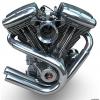Potential treatment for pregnant women who suffer from preeclampsia found in a vitamin
Vitamin B3 nicotinamide may help treat pregnant women who suffer from preeclampsia by preventing strokes and in some cases, even stimulating the growth of their fetus, research indicates.
Up to 8% of pregnant women suffer from preeclampsia, a deadly disease characterized by high blood pressure, blood vessel damage, high levels of protein in the urine and fluid retention that causes swelling in the legs and feet. In some cases, preeclampsia is also believed to restrict a fetus' growth.
Blood pressure-lowering drugs do not improve blood vessel damage. In fact, they reduce blood supply to the babies, which could lead to fetal death.
Until now, the only treatment for preeclampsia-affected pregnant women has been delivery of the baby. Now, researchers at Tohoku University, in collaboration with US scientists, have found that nicotinamide -- also referred to as Vitamin B3 -- relieves preeclampsia in mouse models. Moreover, they have also discovered that nicotinamide can even improve fetal growth in mothers with preeclampsia.
"We had previously shown that endothelin, a strong vessel narrowing hormone, worsens preeclampsia. But inhibiting the hormone is harmful to the babies," says Associate Professor Nobuyuki Takahashi of Tohoku University's Graduate School of Pharmaceutical Sciences, who co-led the study.
"In contrast, nicotinamide is generally safe to mothers and babies, corrects the blood vessel narrowing effect of endothelin, and reduces stress to the babies. Accordingly, we evaluated the effects of nicotinamide using two mouse models of preeclampsia caused by different mechanisms."
The researchers concluded that nicotinamide is the first safe drug that lowers blood pressure, reduces urine protein and alleviates blood vessel damage in preeclampsia-affected mice. The researchers went on to show that in many cases, nicotinamide also prevents miscarriage, prolongs pregnancy period and improves the growth of the babies in mice with preeclampsia.
https://www.scienced...61219100556.htm
































 This topic is locked
This topic is locked






















